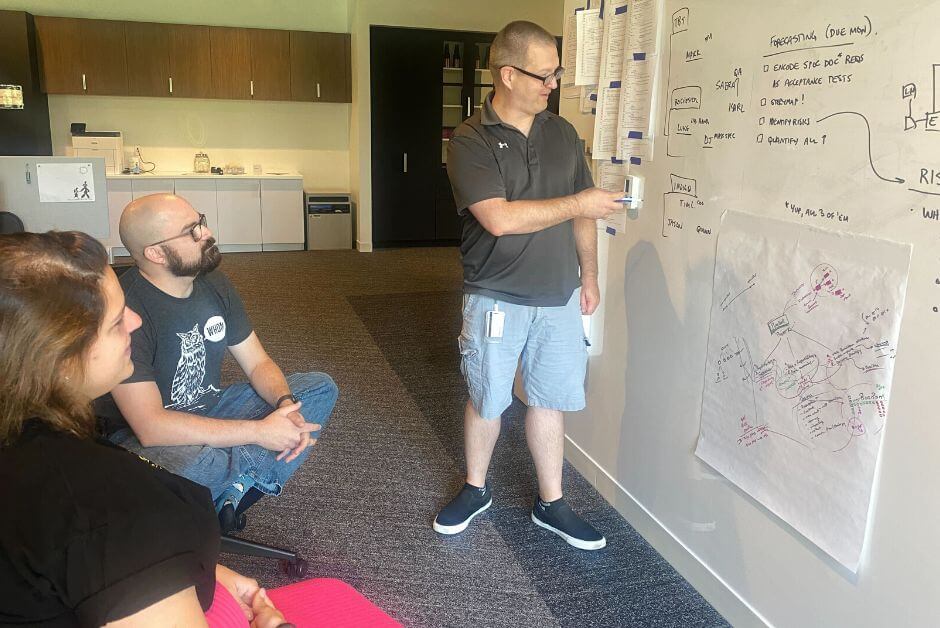
Software product teams are made up of a variety of unique and vital skillsets that contribute to overall success. At SEP, this might look like:
- Engagement managers fostering collaboration between internal teams and client needs
- Team leads overseeing the detailed aspects of day-to-day project work
- Product discovery gurus facilitating workshops to build shared understanding, roadmaps, and plans with key client stakeholders
- Makers (designers, engineers, testers) conducting user testing and research, designing UX, writing code, testing and deploying finished products
Each person on the team brings invaluable talents and experiences to a project. As our company has grown, we’ve kept an intentional eye on the balance of these various skillsets and personalities to set our teams up for success across the board.
So, what are Engagement Managers?
As our company and client portfolio have grown, we’ve also been growing our Engagement Management team to facilitate these important conversations and relationships.
Our Engagement Managers have a diverse skillset: some are former developers, some are prior executives, and others have more of a sales and account management bent.
And how do Engagement Managers bring out our best?
#1. They care for our makers.
When I joined SEP, managers patiently showed me the ways of software product development and how the culture of SEP differs from other firms. There’s a rich heritage of hiring big-brained makers and solving our clients’ toughest problems.
Our craft is important–knowing how modern products are built is table stakes for the job. What stuck most, though, was watching managers care for their teams. Looking out for our people, their interests, and their success is a huge component of the role.
Work with awesome people.
Check out our current openings for your chance to build things that matter with creative, curious people.
#2. They care for our customers.
Of course, clients matter to a professional service firm–if you burn bridges you’re out of this game, especially in a town like Indy. But consultancies driven primarily by growth and maximum utilization can’t also have the customer’s best interests at heart.
- Can you imagine having the skill to help a motivated customer, knowing it’s not in their best interest to work with us, and steering them towards another firm?
- Can you imagine it being okay to tell a client the hard truth about their plans, knowing they might fire you?
- Can you imagine giving free advice knowing a customer might steal it and hire your low-cost competitor?
If you’ve read Pat Lencioni’s Getting Naked, you know what I mean. Being vulnerable and doing the right thing for our customers is the way our engagement managers show up.
#3. They care for our company.
ESOPs like us play the long game. We don’t talk about exits, meeting PE firm demands or aggressive growth targets. Do we want to grow? Yep. Fast and furious? Nope.
Reinforcing our culture-first approach, supporting the paced growth, staying curious, and relentlessly finding better ways to work is how leaders thrive at SEP.
Over a decade later, SEP has more than doubled in size and increased in empathy for each other, our teams, and our customers. We continue to make a conscious shift to relationship-based partnerships between customers and our empowered teams. Engagement managers play a vital role in our present and future.